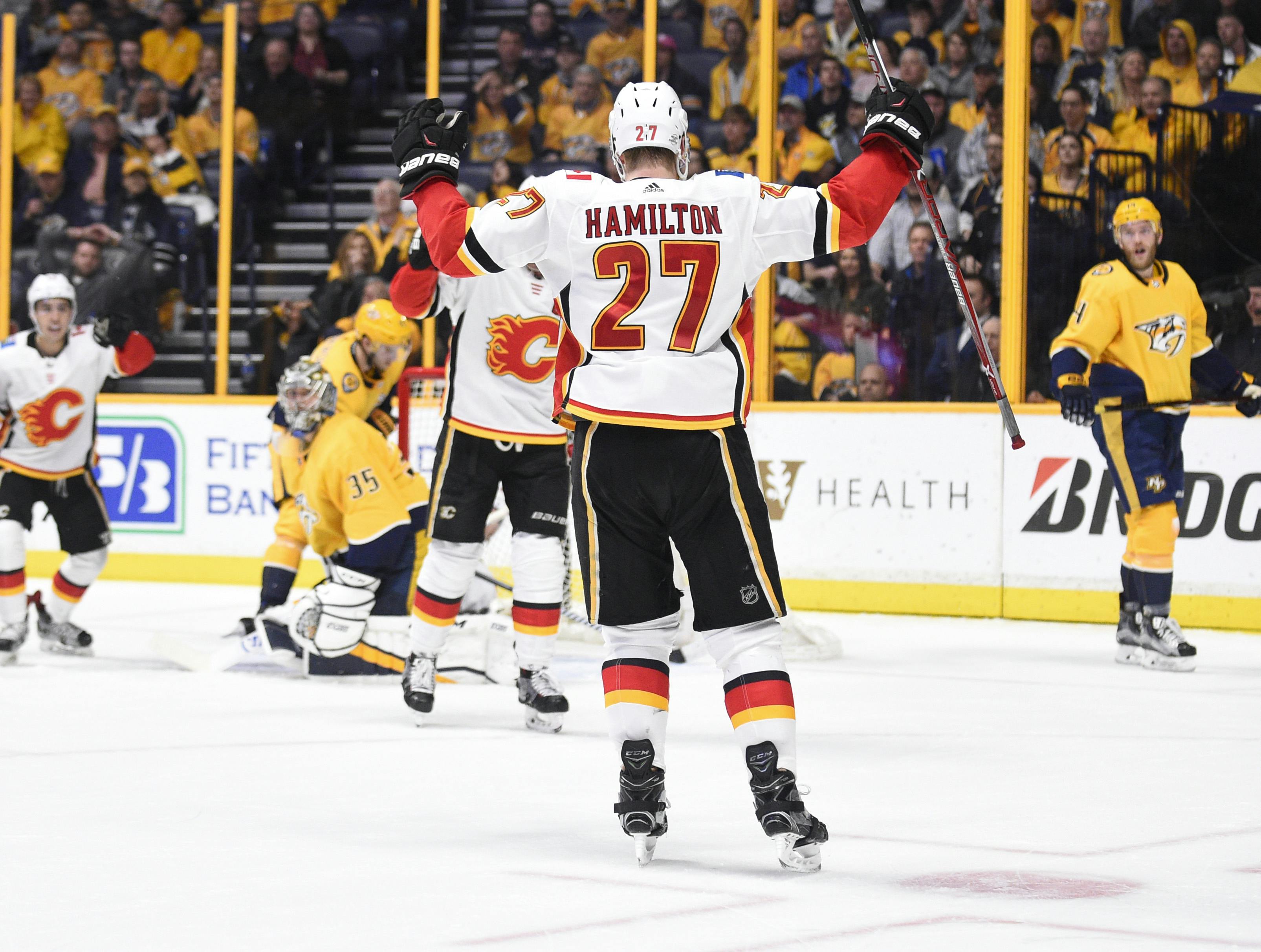Did the Flames’ powerplay cost them a playoff spot in 2017-18?

By Ari Yanover
5 years agoA lot of things went wrong for the Flames in 2017-18, but the league’s third worst powerplay, sitting at a paltry 16.0%, was chief among them.
So, Geoff Ward to the rescue? The Flames’ new assistant coach is known as a powerplay guy, and if he can right that particular ship, the 2018-19 season could turn out much better from that alone.
Ward has been an assistant coach in the NHL for 10 seasons now, splitting his time between Boston and New Jersey, without working in the NHL during the 2014-15 season. Granted, there are always other factors involved – player personnel, other coaching decisions, just plain ol’ luck – but here’s how his teams’ powerplays performed each year.
| Season | Team | PP% | Rank |
| 2007-08 | Bruins | 17.5 | 16 |
| 2008-09 | Bruins | 23.6 | T-4 |
| 2009-10 | Bruins | 16.6 | 23 |
| 2010-11 | Bruins | 16.2 | 20 |
| 2011-12 | Bruins | 17.2 | T-14 |
| 2012-13 | Bruins | 14.8 | T-25 |
| 2013-14 | Bruins | 21.7 | 3 |
| 2015-16 | Devils | 19.9 | 9 |
| 2016-17 | Devils | 17.5 | 22 |
| 2017-18 | Devils | 21.4 | T-9 |
There’s been some variance from season to season, but coming off of a recent top 10 performance – and three of his top four performances coming over this past four seasons – certainly does at least give one hope.
Earlier in the season, I posed a question: How many games had the Flames lost due to the powerplay? With the 2017-18 season over, I’d like to revisit that question, with some stricter criteria in place:
- Multiple powerplay opportunities in the game were required.
- A powerplay success rate under 50% per game was required to get the two-point regulation win.
- If the sub-50% successful powerplay would have gotten them to overtime, I’ll count it as a one-point overtime loss.
- In the case of empty netters, all powerplay opportunities had to come before the other team scored in the empty net. If the Flames’ hypothetically marginally successful powerplay tied the game before the empty netters were scored, obviously they wouldn’t have had the chance to come to pass.
Based on those metrics, I count 14 points the Flames’ powerplay cost them through the 2017-18 season: four from wins (a loser point was originally collected in each of them), and 10 loser points (which could have resulted in more, assuming a fortuitous overtime).
Fourteen additional points would have seen the Flames finish the year with 98 on the season total, which would have earned them the second wild card slot. They would have played against the Predators in the first round of the playoffs. (And how tight were things? If they had collected the overtime or shootout win in half of those hypothetical loser point games, they would have had home ice advantage in the first round of the playoffs.)
Just one powerplay goal in the 0-fer games listed below would have gotten the Flames another eight points alone. Eight additional points would have seen the Flames finish with 92: three points out of the final wild card spot, but with the hope that they might have played a little better down the stretch with the chance of the playoffs still in sight.
| Date | Opponent | Final score in loss | PP success rate |
| Oct. 21 | Wild | 4-2 (1 EN) | 1 for 6 |
| Dec. 12 | Wild | 2-1 (SO) | 0 for 3 |
| Dec. 14 | Sharks | 3-2 | 0 for 3 |
| Dec. 16 | Predators | 2-0 | 0 for 5 |
| Dec. 29 | Ducks | 2-1 | 0 for 3 |
| Jan. 20 | Jets | 2-1 (SO) | 0 for 4 |
| Jan. 24 | Kings | 2-1 (OT) | 0 for 5 |
| Jan. 25 | Oilers | 4-3 (SO) | 0 for 4 |
| Jan. 30 | Golden Knights | 4-2 (1 EN) | 0 for 3 |
| Feb. 9 | Rangers | 4-3 | 1 for 6 |
| Feb. 13 | Bruins | 5-2 (1 EN) | 0 for 5 |
| Feb. 27 | Stars | 2-0 | 0 for 6 |
| Feb. 28 | Avalanche | 5-2 (1 EN) | 0 for 5 |
| March 19 | Coyotes | 5-2 (2 EN) | 0 for 3 |
Is aiming for enough loser points to squeak into the playoffs a good strategy? No, and certainly not for a team that dealt away most of its draft picks and thought itself encroaching on contender status. The powerplay wasn’t the only thing wrong with the Flames this past season: but there is an argument that it played an extremely pivotal role in keeping the Flames from making the playoffs.
Hopefully, Ward can at least rectify this part of the Flames’ failures, because they were particularly costly.
Recent articles from Ari Yanover





